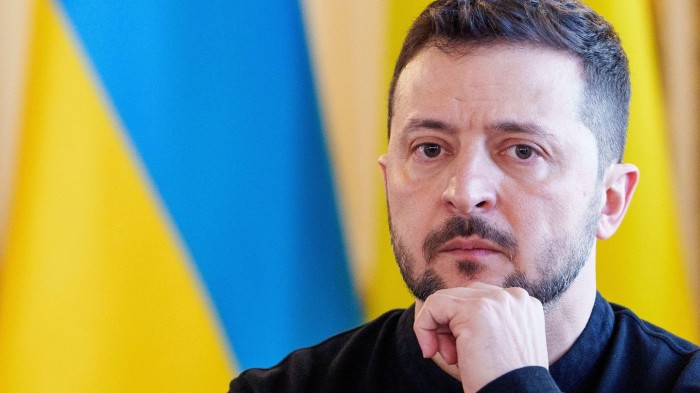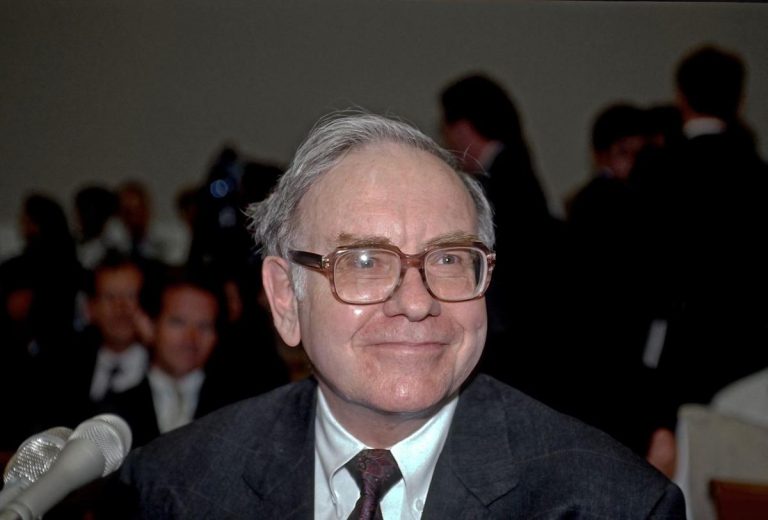Unlock the Editor’s Digest for free
Roula Khalaf, Editor of the FT, selects her favourite stories in this weekly newsletter.
Ukraine said on Thursday that it had failed to reach a deal with holders of $2.6bn of its debt, in a blow to its hopes of securing a restructuring ahead of a payment deadline next month.
The country’s finance ministry said it would “consider all available options” on a restructuring and continue negotiations after the failure of opening talks in Washington this week with a group of holders of its so-called GDP warrants.
Last month the IMF said that “if left untreated”, the warrants “constitute an important risk” for debt sustainability even after a $15.5bn bailout by the fund and a restructuring of more than $20bn of bonds last year.
The warrants were left out of last year’s restructuring, given their complexity, but Kyiv needs to strike a deal on them to avoid potentially billions of dollars flowing out of its finances in the years ahead.
Payouts on the warrants are tied to Ukraine’s annual economic growth, which could rebound strongly in the event of a ceasefire with Russia.
Kyiv will have to decide whether to default on a payment of close to $600mn that is due at the end of May, linked to the economy’s performance in 2023, if it is unable to reach a deal on a restructuring before then.
Prices on the GDP warrants fell by two cents to 71 cents on the dollar on Thursday, having risen to as much as 88 cents earlier this year on bets on a rapid peace deal that would boost growth.
The warrants were issued as part of a previous restructuring of Ukrainian debt in 2015 and were designed to encourage creditors to back the country by giving them a share of any upside for its economy.
However, they have become contentious in the wake of Russia’s full-scale invasion in 2022 because Kyiv — along with its western backers — is reluctant to see its money flow to private investors as the economy recovers from its wartime nadir.
The warrants offer a payout to holders if Ukrainian annual growth exceeds 3 per cent, but Kyiv has argued they are outdated given the damage done to the economy by the conflict.
“The GDP warrants were designed for a world that no longer exists,” said Ukraine’s finance ministry on Thursday. “Ukraine’s modest economic growth in 2023 was not a sign of surging prosperity but a fragile rebound from a nearly 30 per cent downturn caused by Russia’s full-scale invasion.”
The talks this week were with members of a committee of significant warrant holders that includes hedge funds VR Capital and Aurelius Capital Management. Ukraine will also hold discussions with other holders of the warrants.
Ukraine’s proposal “has no prospect of approval by a requisite majority of holders of the warrants nor does it form the basis for a viable point of engagement with warrant holders”, the committee said on Thursday.
In this week’s talks, Ukraine offered investors the option to swap all of their warrants into a larger amount of bonds from last year’s restructuring, according to a presentation released by Ukraine on Thursday. These bonds, which are currently trading at about 50 cents on the dollar, also have upside based on GDP growth, and will pay out more after 2028 if Ukraine’s GDP growth beats IMF targets by then.
The government also offered investors an alternative deal that would preserve the warrants but cancel payments for GDP growth between 2023 and 2026. That option would also give Kyiv more flexibility to buy back the warrants at a discount in future, in return for investors gaining an extra amount of restructured bonds worth one-third of their holdings as compensation.
The group of warrant holders in this week’s talks offered to restructure the payment due next month, by accepting one-quarter of the amount in bonds — that would have a 2029 maturity and 7.75 per cent coupon — rather than taking all of it in cash, warrant holders said on Thursday.
Such terms would make their bonds more valuable than Ukraine’s other restructured bonds, whose payments are capped at a lower level until later in the decade.
The warrants were included in a two-year suspension of payments that Ukraine agreed with bondholders after Russia’s invasion. Kyiv paid about $200mn on the warrants last year when this suspension ended, in part so it could keep alive an option to buy back the warrants in future.
The committee of warrant holders said on Thursday that “a further wholesale restructuring of the warrants is neither appropriate nor necessary”, in part because of this buyback option, which would allow Ukraine to pay $2.6bn to retire the debt, rather than pay out an expected $6.6bn in future.
Ukraine’s GDP grew by more than 5 per cent in 2023. Payments on the warrants are currently capped at 0.5 per cent of Ukraine’s overall GDP. This cap will eventually expire, giving Kyiv further incentive to restructure payments.
Ukraine unilaterally approved a temporary suspension of payments on the warrants last year that would include the sum due on May 31. But any skipped payments would nevertheless accrue interest at 7.75 per cent a year.







